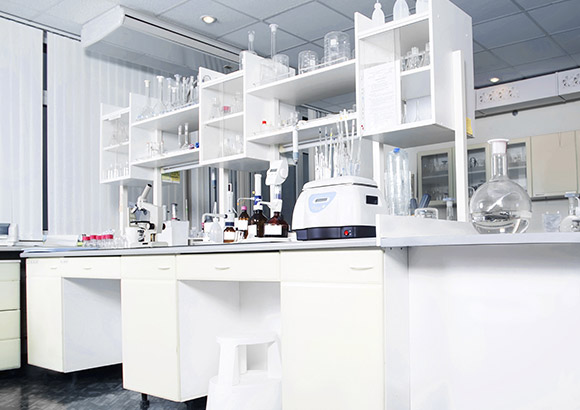
The term “Made in PRC” which stands for People’s Republic of China, refers to products produced inside the country. A title that has made its way into freer international trade and is also emblematic of China as a world-class manufacturing giant. For many sectors, products labelled “Made in PRC” represent a combination of low cost and sufficient utility that attracts businesses and consumers. This designation is essential for businesses looking to navigate the complexities of international markets and fulfil consumer expectations.
In the current global manufacturing sense, Made in PRC is not merely an indication of origin, but also a reputation of noncompliance practice. China faces a dual challenge of needing to maintain its reputation for quality while also keeping up with enormous production demands as the country is no longer solely focused on manufacturing. This quality assurance need has pushed manufacturers to follow a diverse range of protocols and techniques to assure quality for their products both nationally and internationally.
China has implemented stringent regulations and standards for quality assurance in various industries. Manufacturers must comply with these regulations and obtain certifications to ensure product safety, performance, and environmental impact. The “Made in PRC” label signifies adherence to these standards, providing consumers with confidence in the quality and safety of products. China’s active participation in international trade agreements has also helped align its practices with global standards, further enhancing the reputation of “Made in PRC” products. This has led to an increased preference for Chinese products among foreign purchasers.
Implementing effective Quality Management Systems (QMS) is crucial for manufacturers in the PRC to ensure uniform quality outputs and improve customer satisfaction. QMS frameworks like ISO 9001 help identify areas for improvement, reduce defects, and enhance communication across the supply chain. By prioritizing transparency and collaboration, manufacturers can establish greater product credibility and meet the evolving needs of consumers in the competitive global market.
Inspection & Testing is part of the Quality Assurance process for products with a Made in PRC label. Manufacturers are recommended to inspect at different stages of production to identify possible defects from an early stage. This proactive form of tackling ensures that any defects are resolved before the products set foot into the market.
Third-party testing agencies, with their avid involvement in affirming the quality of PRC-manufactured products, also feature prominently here. These organizations perform third-party testing ensuring that products pass under stringent quality standards. These verification methods allow manufacturers to do correct reputation management and ultimately give consumers peace of mind about the products they buy.
X Sourcing is dedicated to offering comprehensive quality assurance services. The company recognizes the significance of maintaining high standards for products labelled as Made in PRC. Their team conducts thorough inspections and testing at various stages of production to identify and address any potential defects early on. Additionally, they collaborate with trusted third-party testing agencies to further validate the quality of products manufactured in the PRC. By implementing these quality assurance measures, X Sourcing aims to provide consumers with confidence in the products and uphold the reputation of their clients’ brands.
With the global economy changing to address more environmental concerns, the PRC is moving away from manufacturing and toward sustainability. With the world moving towards sustainability, manufacturers are now focussing more on sustainable materials and energy-efficient processes. By doing so, it plays a role in cutting profits, and at the same time stepping out amongst consumers who are always on the side of environmentally-friendly brands.
Additionally, the implementation of sustainable production methods is slowly gaining ground in various quality assurance processes. This adoption improves product quality while reducing negative impacts on the environment. All PRC manufacturers can benefit from sustainability added to their quality assurance frameworks, enhancing a reputation and addressing the needs of an increasing proportion of eco-minded consumers. Consumer demand for sustainability can also be met by PRC manufacturers as well, if sustainability is integrated into the quality assurance frameworks of the PRC manufacturer the hardware can gain a good reputation from these conscious consumers.
Even in this context, quality assurance would include the need for rigorous supply chain sustainability standards and practices. Working with suppliers who prioritize the environment helps manufacturers strengthen their sustainability goals without sacrificing product quality. Such collaboration, apart from adding to the confidence of stakeholders, further ensures that PRC-made products continue to remain viable in international markets.
The use of blockchain technology offers a glittering prospect for promoting quality assurance on PRC products. Blockchain enables manufacturers to establish a tamper-proof open jerami tool, documenting every built step via the production and supply chain. Such a level of traceability becomes imperative to meet various quality standards and regulations with consumers and businesses being provided access to accurate information surrounding the provenance and journey of their products.
To ease fears of poor quality and counterfeit goods on products labelled as “Made in PRC”, Blockchain technology can be utilized. The immutability of each transaction stored in a ledger helps ensure parties that the product is untampered, thus building trust on which sourcing and manufacturing process to base their cases. As modern consumers begin to demand more accountability from brands, this transparency can prove instrumental in lessening the burden of risk that comes with quality assurance.
Not only traceability, the use of blockchain can facilitate communication between different actors in the supply chain, and this reduces errors that can result from misunderstandings and failure to meet quality standards. The manufacturers using this technology will be better positioned to respond to changing expectations by consumers and regulators in both safety and authenticity, thus strengthening the trustworthiness of products branded with a Made in PRC sign.

Working with sourcing experts (like X Sourcing Direct) can provide needed advantages for optimizing Quality Assurance and the Procurement process of PRC-made goods. X Sourcing has a wealth of experience in the Chinese manufacturing market, and they can connect you with some genuine companies that are likely to follow quality assurance standards. In doing so, businesses can make sourcing decisions with confidence and without needing to reinvent the wheel.
X Sourcing offers a range of services to meet customers’ sourcing needs. They have the expertise and an extensive network to help find reliable suppliers, negotiate favorable terms, and ensure product quality. The team conducts thorough inspections and testing procedures to identify and resolve any potential defects early on. Effective communication and long-term relationships with suppliers are prioritized to ensure a smooth and efficient supply chain. Customers can trust X Sourcing to optimize their sourcing process and deliver high-quality products.
In addition, X Sourcing advocates to the manufacturers in its network to adhere to industry standards and best practices. Such a focus on quality assurance allows businesses to have a higher degree of confidence in the products they source from the PRC. The collaborative elements within this partnership bring greater quality to the product and also nurture long-term trustworthy relationships between consumer and client where both parties benefit.